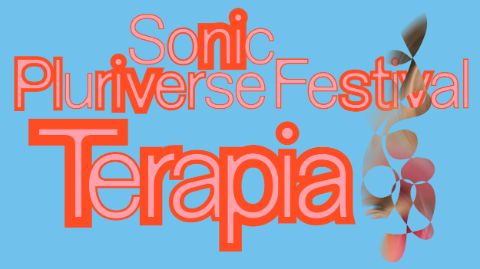Sonic Pluriverse Festival 2024
Terapia
Concerts, Live Sets, DJ Sets, Artist Talks, Workshop, Food Stands
4.–26.7.2024

Tickets: €16–24; DJ-Sets: free admission
Early Bird Festival Package: enjoy admission to 9 concert evenings at a special price of €121.50 in total (€13.50 per evening, without other discounts applied; excludes the concert on 11 July 2024). The offer is limited to 100 tickets—first come, first served!
Tickets
One good thing about music, when it hits you (you feel no pain)
Oh, oh, I say, one good thing about music when it hits you (you feel no pain)
Hit me with music, hit me with music now
―Bob Marley, ‘Trenchtown Rock’
Terapia evolved in the context of the Colombian Caribbean, which in turn laid the foundations for the emergence of champeta, a genre that originated in the Mercado de Bazurto in Cartagena de Indias. The city played a significant role in the history of the trade of enslaved people and during colonial times, being a strategically located port and principal trading point of enslaved persons, and is forty-nine kilometres from Palenque de San Basilio, the first free African city on the American continent. The small Black community was founded by Maroons, people of African descent who had freed themselves from enslavement.
Against this historical background, terapia emerged during the 1980s, encompassing a diverse range of rhythms, primarily of African and Caribbean origin. This included genres such as mbaqanga, bubblegum, and jive from South Africa, soukous from Congo (Zaire), zouk from Martinique and Guadeloupe, Makossa from Cameroon, and soca from Trinidad and Tobago. The spread of these genres in Colombia began in late 1960s and was closely tied to the adaptation of sonic components and technologies to suit the development of mobile and locally constructed sound systems known as picós. These picós were notable for their striking decoration, with local artists commissioned to be in charge of the graphic and colourful painted boxes. Each picó boasted a name given by its owner, alongside powerful sound, and played a central role in each street party.
Since its beginnings, the picó phenomenon has been particularly characteristic of working class neighbourhoods in Cartagena de Indias and Barranquilla, primarily inhabited by people of African descent who have historically faced exclusion and marginalisation in a society marked by classism and racism. The gatherings and parties centred around picós are independent and self-managed spaces where, since their earliest incarnations, the community has been able to develop new forms of social relations around the sound systems. For instance, dance practices related to terapia music built upon this foundation and evolved organically, drawing from ancestral memory in the absence of the internet and or social media. People danced to terapia mainly in pairs, engaging in sensual and intuitive movements performed extremely close to the speakers, where the body could experience the full force of the sound waves. There are testimonies that say that it felt as if the sound penetrated through the skin, so much that individuals left in a different state of mind than when they had arrived, a sensation that could resonate for days, evoking a positive feeling akin to happiness. For this reason the community decided to call this music: terapia (‘therapy’).
Terapia is a wide-reaching interdisciplinary concept wherein diverse epistemologies converge addressing different dimensions related to healing. It encompasses a journey through contemporary sonic practices that are influenced by rituals and ceremonies ranging from the syncretism of candomblé, tamunangue, and Mardi Gras to Aita oralture, Baganda and Yoruba drumming traditions, as well as gut shamanism, among others. Over four weekends, Sonic Pluriverse Festival: Terapia offers possibilities to experience sonic transformations.